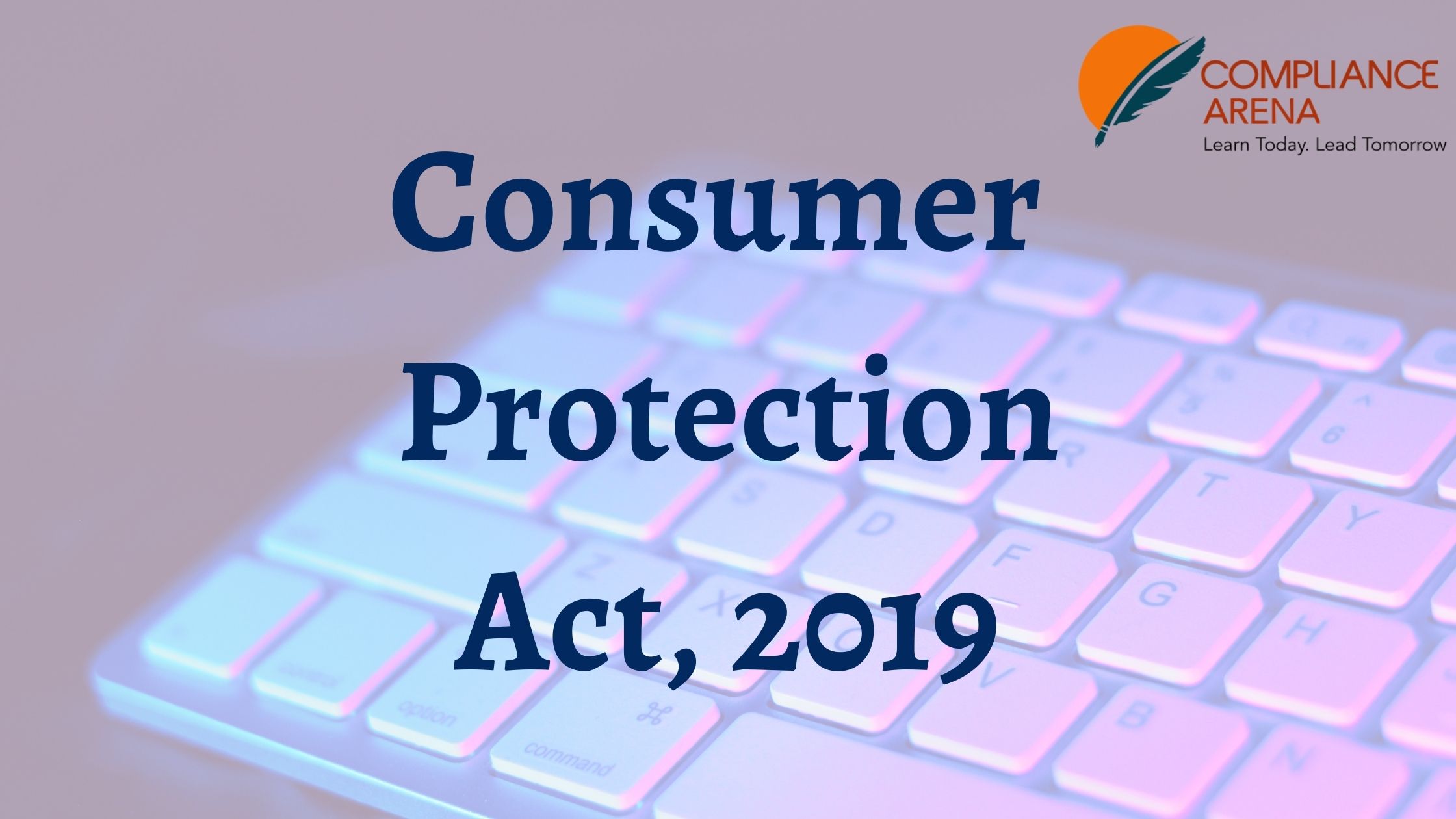New Consumer Protection Act, 2019 came into force on 20th July 2020 and it will empower consumers and help them in protecting their rights through its various rules and provisions.
Why New Consumer Protection Act, 2019?
The Question arises as to why old consumer protection act, 1986 has been abolished and new came into effect. The major reason was single-point access to justice which was resulting it a time-consuming process. Therefore, the new act will be swift and less time consuming compared to the older Act. Also, introduction of E-commerce rules makes it very relevant nowadays. Also, there was no separate regulator in earlier Act, which has been specifically introduced in the New Act.
Key Points of Consumer Protection Act, 2019
1. The Consumer Protection Act, 2019 establishes the Central Consumer Protection Authority (CCPA) whose primary objective will be to promote, protect and enforce the rights of consumers. CCPA will conduct investigations into violations of consumer rights and institute complaints/prosecution, passing orders to recall of unsafe goods and services, order discontinuance of unfair trade practices and misleading advertisements and impose penalties on manufacturers/endorsers/publishers of misleading advertisements.
2. A consumer is defined as a person who buys any good or avails a service for a consideration. It does not include a person who obtains a good for resale or a good or service for commercial purpose. It covers transactions through all modes that is offline, online through teleshopping, multi-level marketing or direct selling.
3. Rules on E-commerce are mandatory which provides that E-commerce entities are required to provide information to consumers, relating to return, refund, exchange, warranty and guarantee, delivery and shipment, modes of payment, grievance redressal mechanism, payment methods, security of payment methods, charge-back options and country of origin.
4. The CCPA may impose a penalty on a manufacturer or an endorser of up to Rs 10 lakh and imprisonment for up to two years for a false or misleading advertisement. In case of a subsequent offence, the fine may extend to Rs 50 lakh and imprisonment of up to five years.
5. Product liability means the liability of a product manufacturer, service provider or seller to compensate a consumer for any harm or injury caused by a defective good or deficient service.
6. Six consumer rights have been defined in the Bill, including the right to: (i) be protected against marketing of goods and services which are hazardous to life and property; (ii) be informed of the quality, quantity, potency, purity, standard and price of goods or services; (iii) be assured of access to a variety of goods or services at competitive prices; and (iv) seek redressal against unfair or restrictive trade practices.
7. No fee for filing cases up to Rs. 5 lakh.
The New Consumer Act, 2019 have provided a strict provisions on E-commerce, Direct selling. Now, “Rule of Caveat Emptor” where it provides that Let the Buyer Beware have been changed to Consumer is the ultimate king. Now the onus have been shifted to seller or service providers.
For any queries or requirements contact
CS Arpit Garg
Practicing Company Secretary
Founder-ComplianceArena Professionals LLP
8447773833
info@compliancearena.in













Great